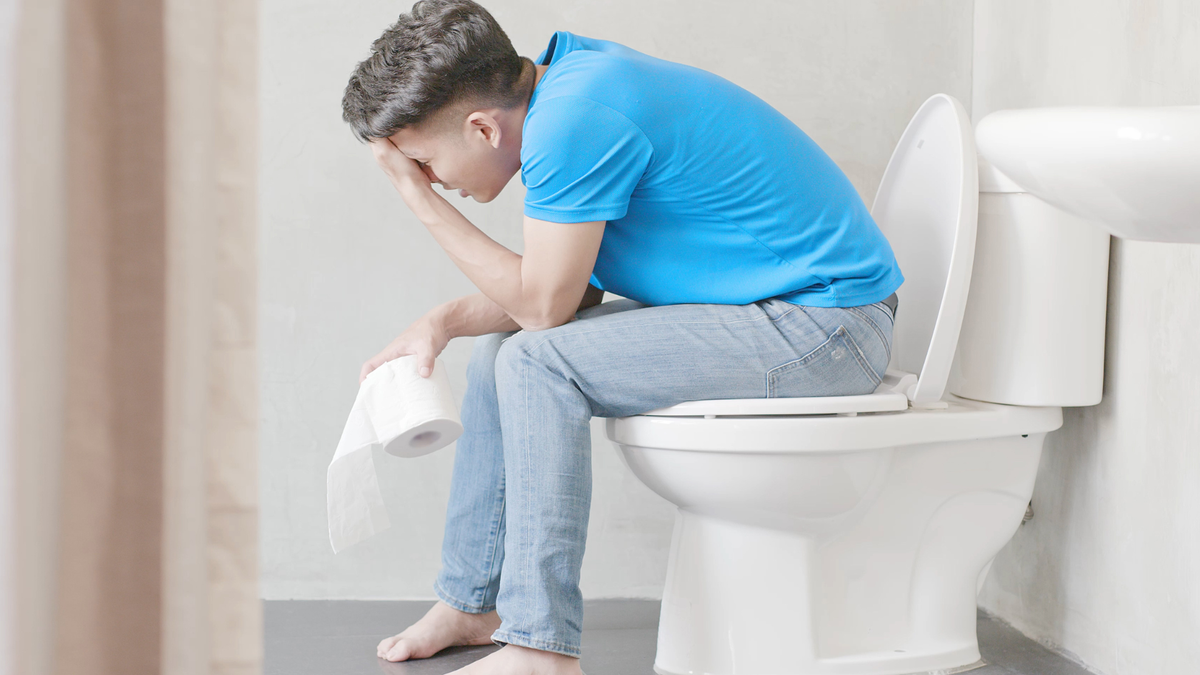Constipation

An estimated 15% of Americans suffer from constipation. As we will see, Western medicine's definition of constipation is much narrower than that of naturopathic approaches, so this statistic may be lower than the actual reality.
Regardless, we know improper and poor bowel functions are major determinators of more critical and chronic conditions. Poor bowel functions set the stage for major illness and conditions, in terms of physical health and mental health. The good news is it is relatively easy to tackle once the right protocols are in place.
In this article we will discuss:
- What constipation is (western and eastern definitions)
- What causes constipation
- How to treat constipation

What is Constipation?
Constipation refers to infrequent and/or painful bowel movements. This raises the question: what is considered infrequent? While "painful" is self-explanatory, the definition of infrequency varies.
Western Definition: In Western medicine, constipation is typically defined as having fewer than two to three bowel movements per week.
Naturopathic & Unani Tibb Definition: In contrast, Naturopathic and Unani Tibb perspectives define constipation as having fewer than one bowel movement per day. Ideally, a person should have one bowel movement for each meal consumed—three meals should lead to three bowel movements daily. Therefore, while 15% of Americans are considered constipated by Western standards, from a Unani Tibb perspective, the true percentage is likely much highe

What Causes Constipation?
There are many factors that cause constipation, so it's important to look at the whole picture—all aspects of an individual's life—when understanding what might be contributing to their constipation.
Healthy bowel movements are driven by a process called peristalsis—wave-like muscle contractions that help move food through the digestive system, from the esophagus to the intestines. Once food passes through the gastrointestinal (GI) tract, waste collects in the rectum, the final part of the large intestine. When enough stool accumulates, the pressure signals the brain to create the urge to defecate.
Therefore, several aspects need to be considered: What is the condition of the stool? Is it easy to pass? Are the wave-like peristaltic movements functioning properly? Is the signal to the brain being sent and acknowledged, or is it unconsciously ignored? Let's dig deeper into these factors.
For some people, constipation occurs because the muscles in their gastrointestinal (GI) tract are not functioning properly. The peristaltic movements have slowed to an unhealthy speed, causing the stool to become stuck along the digestive tract.
For others, their muscles are working fine, and peristalsis is active. However, the composition of their food—their diet—makes the stool difficult to pass. This is like a car breaking down on a clear motorway: the road is fine, but the vehicle (in this case, the stool) is poorly equipped to travel smoothly.
In yet another group, constipation may have psychosomatic origins. The abnormal suppression of the urge to defecate could stem from deeper psychological reasons. For example, children who struggle to defecate may be responding to feelings of insecurity or discomfort in their environment. Interestingly, research has shown a link between experiences of sexual abuse and constipation, pointing to the emotional dimension of the condition—an aspect often overlooked by Western medicine.





